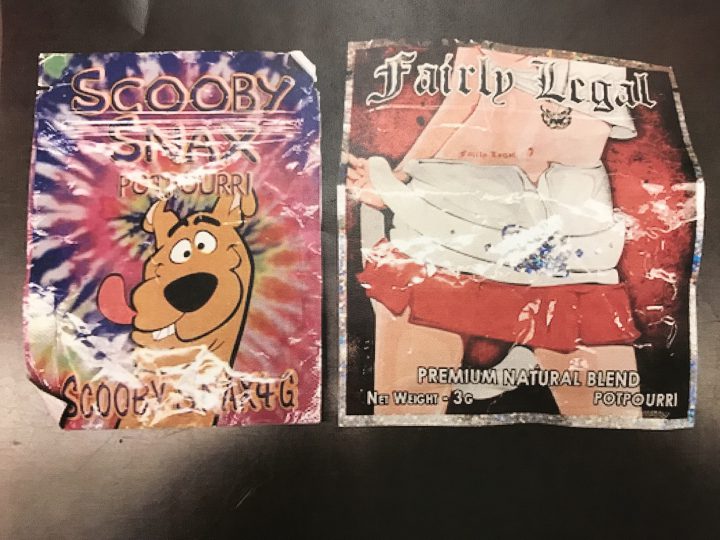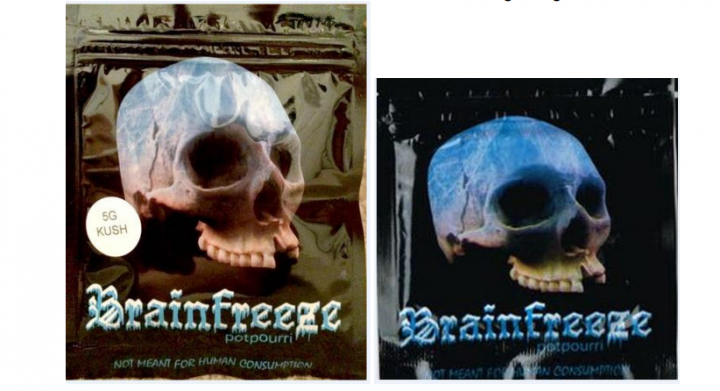New York officials are warning the public to be vigilant after dozens of people were hospitalized over reactions to synthetic marijuana known as K2.

The same type of synthetic marijuana has made people sick in Brooklyn before, according to police.
READ MORE: Fake marijuana laced with rat poison kills 3, makes 100 sick in U.S.
“K2 is a dangerous, deadly drug, but this strain is especially threatening,” New York Police Department Chief Terence Monahan said.
Synthetic marijuana has prompted alerts in north of the border as well.
WATCH: Marijuana ‘snacks’ brought to Ontario school

Here’s what Canadians should know about the risks surrounding synthetic marijuana.
What is synthetic marijuana?
Synthetic marijuana is a compound that mimics the effect of THC, the most psychoactive ingredient in marijuana. It is typically sprayed or soaked into plants.
The drug can be many times as potent as the THC in marijuana.
READ MORE: Why U.S. health officials are warning about synthetic marijuana
It is usually found in foil packaging and smoked with pipes, inhalers or paper.
According to Health Canada, fake marijuana can also be sold under other names: IZMS, Herbal Highs, Spice, Yucatan Fire, Earth Impact, London Underground.
But new names and packaging for such products are common, so it’s important to constantly be on the lookout.
WATCH: Pet owners warn about dogs ingesting marijuana

Jack Rosenfeld, a professor at Ontario’s McMaster University who specializes in pharmacology, explained that fake weed isn’t made by reputable organizations and isn’t regulated.
“The problem is that those compounds are not made by legitimate drug companies, sometimes they are not very pure, sometimes they are mixed with other things, so they can be quite dangerous,” Rosenfeld said.
What is the risk in Canada?
Health Canada tracks the distribution of synthetic marijuana, and advises Canadians to stay away from all such products.
In August 2017, for example, the public health agency issued a warning for Edmonton residents after such products were found.
The products were labelled Brainfreeze Potpourri or Brainfreeze Herbal Incense, and being sold online as well as in some stores.
Health Canada explained in a press release at the time that it works with all levels of government to stop synthetic marijuana from entering Canada.
But Rosenfeld told Global News that this is difficult in practice, as it is with any street drug.
“How do you control street drugs? They’re smuggled in. They’re sold on the street.”
The professor added that if New York is facing a problem with K2 overdoses, Canada should be very alert.
“If it’s happened in New York, it’s likely that stuff is going to get smuggled into Canada and there could be similar problems.”
WATCH: What will stores selling legalized marijuana look like?

Health effects of synthetic marijuana
Fake marijuana products are often mislabeled with inaccurate ingredient lists, Health Canada warns. That means they may cause unexpected health effects.
Some may include restlessness, agitation, dizziness, anxiety, memory loss, and irregular or rapid heartbeat. More serious conditions such as shortness of breath, chest pain, nausea and vomiting are also possible.
READ MORE: Police issue warning after marijuana ‘snacks’ brought to Toronto-area elementary school twice
What are the regulations in Canada?
Health Canada has warned that no one should buy products labelled as “synthetic marijuana,” or other common names such as “smokeable herbal incense,” “exotic herbal incense,” “potpourri,” or “legal high.”
It is illegal for products to contain ingredients that are “synthetic preparations of cannabis,” Health Canada explained, adding that they are regulated over the Controlled Drugs and Substances Act.
WATCH: People gather outside Parliament Hill for 4/20 rally ahead of marijuana legalization

“Consumers who have these products in their possession are strongly advised to dispose of them immediately,” the health agency explained.
It added that retailers selling fake marijuana should know the products can be seized by law enforcement. And legal action can be taken against any retailer or consumer who has such products in their possession.
- Life in the forest: How Stanley Park’s longest resident survived a changing landscape
- ‘Love at first sight’: Snow leopard at Toronto Zoo pregnant for 1st time
- Carbon rebate labelling in bank deposits fuelling confusion, minister says
- Buzz kill? Gen Z less interested in coffee than older Canadians, survey shows





Comments